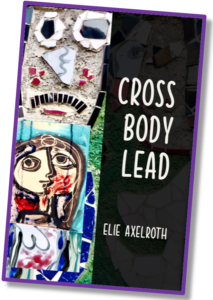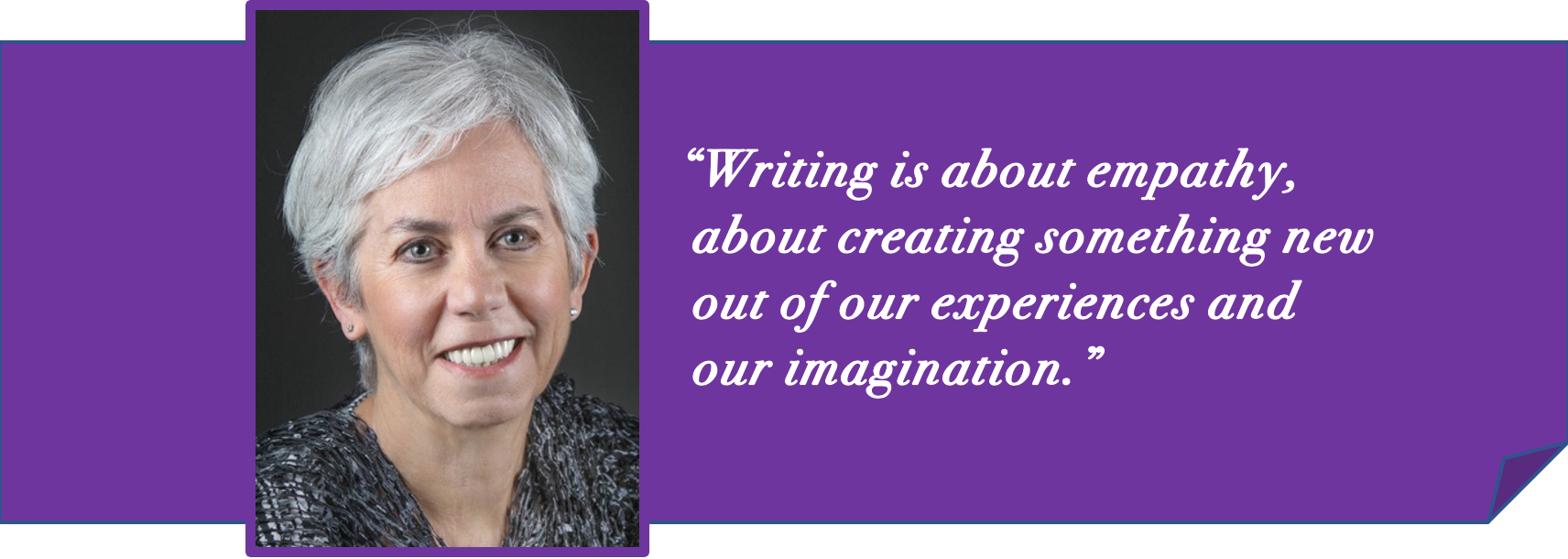A Cautionary Tale about Writing the Other
At various times during the drafting and editing of my second novel, Cross Body Lead, I wondered if I was complicating my life by writing characters who didn’t look like me (I am white).
 Protagonist Billie Ochoa is Cuban-American. She teaches Cold War politics, and she’s edgy, charismatic and resolute, especially when it comes to advocating for the vulnerable and marginalized. Evelyn Davis, a Black student in one of her classes, is being stalked. When the police and administration claim there’s nothing they can do, Billie takes matters into her own hands. The novel asks the question: how far would you go to right an injustice?
Protagonist Billie Ochoa is Cuban-American. She teaches Cold War politics, and she’s edgy, charismatic and resolute, especially when it comes to advocating for the vulnerable and marginalized. Evelyn Davis, a Black student in one of her classes, is being stalked. When the police and administration claim there’s nothing they can do, Billie takes matters into her own hands. The novel asks the question: how far would you go to right an injustice?
Each time I attempted to recast the face of these characters, I came back to my original decision.
Billie’s father, as part of Operación Pedro Pan, was brought to the United States—along with 14,000 other young Cubans—soon after Castro’s rise to power. It’s a fascinating piece of our history and underlies her fierce commitment to social justice.
As a Black woman, Evelyn is accustomed to being followed in drug stores and clothing shops, but now she is being stalked. When she files a complaint with the police, it is unclear if her race has anything to do with their lackluster investigation.
I believe that writing either of these characters as white would not have served the novel, but would have resulted in a less complex, less convincing, less compelling story.
With few exceptions, I believe writers should write what they want to write and artists should paint what they want to paint.”
As it turns out, these choices had consequences.
Let me be clear: With few exceptions, I believe writers should write what they want to write and artists should paint what they want to paint. The same is true for musicians and dancers and filmmakers. This essay is a cautionary tale at a time when the art world is sorting out how to respond to concerns about cultural appropriation.
What is the difference between appreciation and appropriation? When is cultural appropriation just plain theft? Isn’t imitation the highest form of flattery? Unfortunately, there are no easy answers.
Once the manuscript was complete, I began the query process. I was surprised to have so few requests for the manuscript. Then I received this from one agent:
“Thanks very much for sending these chapters along, Elie. They are beautifully written and promise a compelling story, but unfortunately, I’m going to pass. With publishing’s focus on #ownvoices representation, I fear this will be hard to place.” (Emphasis mine.)
I shifted gears and began to query small publishers. In 2020, I signed with Propertius Press and was assigned an editor—as it happened, a Black woman, who was helpful in my thinking about Evelyn’s character and the strength of her resistance to the stalker.
Cross Body Lead was published in 2021 and was greeted with positive reviews from Kirkus Reviews and Readers’ Favorites, and earned a five-star review and a bronze award from Reader Views.
It takes courage to write, and even more courage to write what you don’t know.”
Hoping to market my book locally, I reached out to our local university, Cal Poly. I proposed using my novel as a starting point for discussion about stalking. I was met with initial enthusiasm, suggesting we could have a panel discussion, or a book circle.
Suddenly, all plans were canceled. Because I am a white writer, I was told “It’s not your story to tell.” I offered to donate any profits, address the issue of cultural appropriation on a panel—all were met with the same response. Aside from marketing my book, I am saddened by a missed opportunity to bring much needed attention to the issue of stalking on college campuses.
In a 2019 keynote address to the Association of Writers & Writing Programs, Colson Whitehead (The Underground Railroad, Harlem Shuffle, The Nickel Boys) encouraged writers to write what they don’t know. Essentially his advice when writing across race and gender is to “get it right.” No one’s going to call you out unless you bungle it, he said.
It would be an incalculable loss if we were confined to writing only what we know. At the same time, we don’t want to further entrench racial, cultural, and gender stereotypes.
I’m not insensitive to issues of race and cultural appropriation. There is tremendous inequity in the publishing world—who gets published, who gets advances and how much, resources devoted to publicity, promotional tours.
According to the New York Times, just 11% of books published in the U.S. in 2018 were written by people of color; 80% were written by white authors. There are few BIPOC editors in the industry, something that would surely increase the number of authors of color who are published. White, male authors are over-represented on best-seller lists. Clearly, this inequity needs to be addressed.
Writing is about empathy, about creating something new out of our experiences and our imagination. Not only is Cross Body Lead a better book because of the characters who don’t look or act like me, but I’m a better person—for having to think about lives and experiences and challenges that aren’t my own.
It takes courage to write, and even more courage to write what you don’t know.
